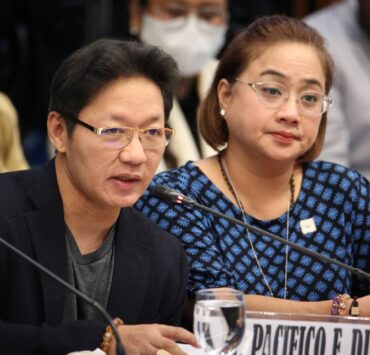COA: Ex-PCGG execs liable for P190-M loss in asset sale

The Commission on Audit (COA) has reiterated that former Presidential Commission on Good Government (PCGG) Chair Juan Andres Bautista and four other officials were liable for selling three sequestered properties from the Marcos family below their estimated market value.
In a 16-page decision, the COA denied the former PCGG officials’ petition against the original decision for lack of merit, affirming the notices of charge (NCs) it brought against them amounting to P190 million for the undervaluation of the Marcos properties sold between 2012 and 2014.
These assets included the Banaue Inn Compound and JY Campos Compound both in Baguio, and the IRC Mapalad Property in Parañaque City.
No due diligence
Aside from Bautista, also implicated were then COA Commissioners Nelson Acebo and Ronald Chua, bids and awards committee (BAC) chair Richard Amurao, and Alfredo dela Paz, director of the Asset Management Division.
Specifically, Bautista was cited for approving the sale, while Amurao, Chua, Dela Paz and Acebo were tagged for evaluating the bid offers on the properties.
As the approving authority and the BAC members who evaluated the bids, the PCGG officials “should have exercised due diligence in ensuring that there was no loss suffered by the government in the disposal of the said properties,” said the COA in its ruling.
“As officers who were responsible for the undervalued selling price of the subject properties, they should be held liable for the under-collection of said government revenues,” it added.
The case dates back to 2014, when the PCGG was asked to explain why the three properties were sold from 2.64 percent to 37.36 percent below the minimum allowable limit of the COA Technical Services Office (TSO) appraisal.
According to Dela Paz and Amurao, they pegged the properties’ value using the market data approach, which was based on the sales and listings of comparable properties within the vicinity at the time of the appraisal.
Unsatisfied with the justification, the COA issued the NCs against the five PCGG officials in 2015.
Sufficient notice
Based on the audit team’s computation, the estimated value of the properties was P607 million in total, but these were sold for only P417 million, or a P190-million difference.
In dismissing the petition for review, the COA rejected the petitioners’ argument that they were deprived of due process when the state auditors failed to attach a copy of the TSO appraisal reports to the letter before issuing the NCs.
According to the COA, the petitioners were given sufficient notice and all the remedies to explain their side from the time the NCs were issued until the filing of the petition.
The commission also pointed out that the petitioners cannot hide under the cloak of good faith and regularity in the performance of official functions due to the glaring disparity between the appraisal reports and the contract amounts that resulted in government losses.
In its ruling, the COA also noted the possible invalidity of the PCGG’s move to sell the assets sequestered from the Marcos family, saying that this “may not have [had the] prior approval of the Sandiganbayan.”

















